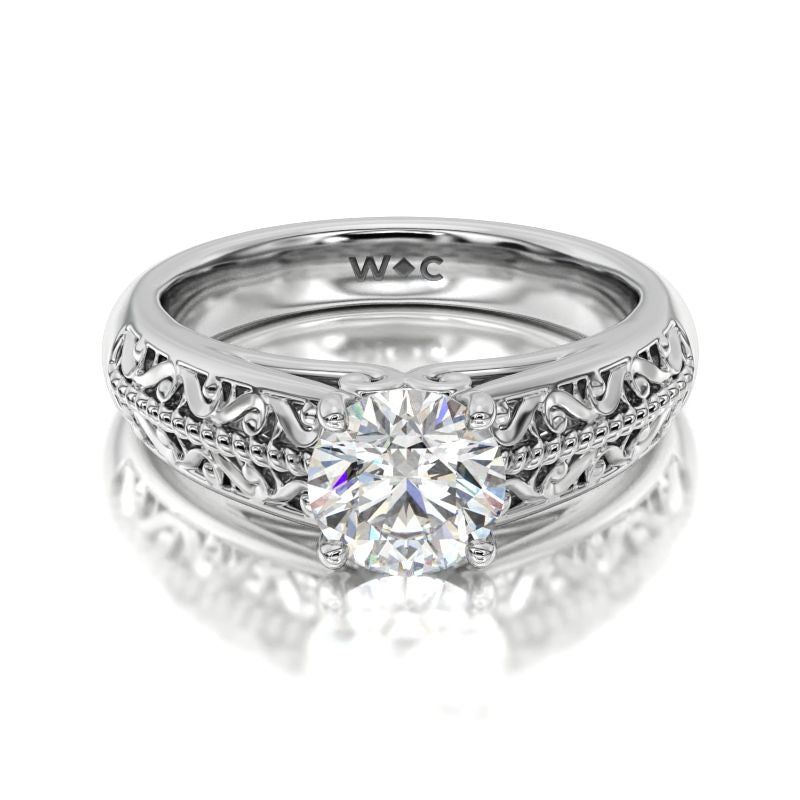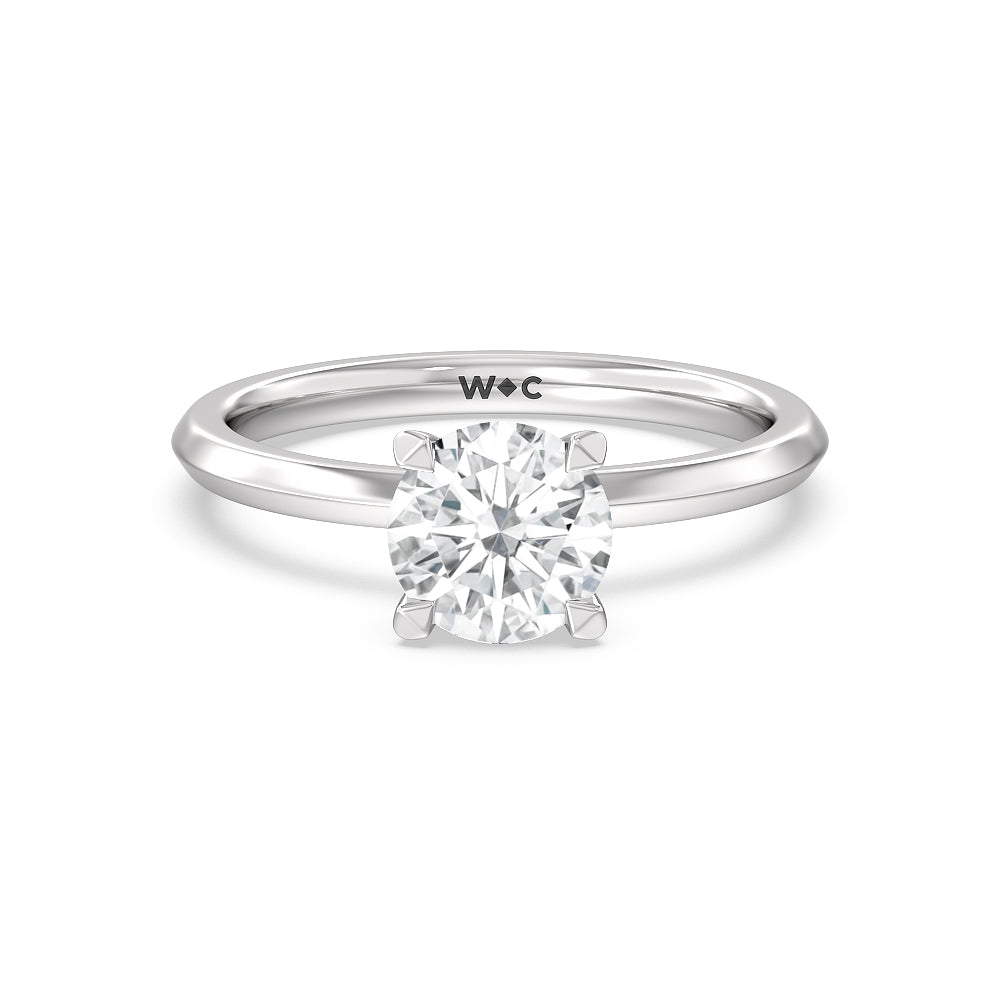
Engagement Ring Trends From the 1940s
The 1940’s was a turbulent decade. At the end of the Thirties, Europe saw the rise of dictators as its economy emerged from the Great Depression. Then, for the second time in living memory, a brutal war engulfed the globe. Finally, the end of the war ushered in a period of optimism and prosperity that would last for many years.
Unsurprisingly, both fashion and jewelry trends were affected by wartime shortages, utilitarian necessity, and finally, the luxury of prosperity. For example, the Art Deco period continued to hold sway, but many materials changed due to availability and rationing.
So, what do jewelry and vintage engagement rings from the 40s look like? Let’s find out.
1940s jewelry trends
Because the war in Europe disrupted supply chains and led to rationing, jewelers had to be very creative when they crafted jewelry. In fact, even less valuable metals like silver and copper were hard to find. Not to mention the rarity of gold and platinum, which were either severely rationed or downright banned for civilian use.
Perhaps it’s no surprise, therefore, that costume jewelry became very popular. It was a nice way to wear something pretty while still complying with wartime restrictions.
Here’s how they did it:
- Synthetic gems: Many synthetics are chemically the same as their mined counterparts, but this wasn’t always what jewelers used. Often, the synthetic gems would be glass or other materials that didn’t cost much, and that wasn’t rationed.
- More metal: People loved big, bold looks. But this wasn’t possible using traditional materials. So, jewelers used a lot of inexpensive base metals with synthetic gems. Think of a heavy brass setting for that lab-created ruby.
- Diamond engagement rings: While colored gems were likely to be synthetic, diamonds became more popular. Not only did Hollywood love diamonds, and lots of them, but miners started marketing them. In particular, DeBeers launched their “Diamonds are Forever” slogan shortly after the war ended.
- Unusual designs: With limited access to precious metals, jewelers worked hard to make something beautiful from what was available. So, they made jewelry settings with bold scrollwork and carvings.
In other words, the wartime years of the 40s involved inexpensive materials combined with good workmanship. Even without access to traditional metals and gems, women were not deprived of their freedom to look beautiful.
1940s-inspired engagement rings from With Clarity
If you want a 40s-inspired engagement ring, we have you covered. They range from lab-created diamond rings to colored gems and mined diamonds. In other words, there’s something for everyone who loves vintage engagement rings.
Fabula Lab Diamond Ring
Fabula is a relatively simple design that draws richly from the 40s spirit. Featuring milgrain arches and vines, it has diamonds on the shank. This is topped off with a round, brilliant center stone. Also, it’s one of our lab-created diamond rings, bringing forward the trend for synthetics. Best of all, lab-created diamonds have the same durability and beauty as mined diamonds.
Vintage Filigree Classic Engagement Ring
Heavy metalwork defines this classic design. Because vintage engagement rings are so popular right now, this is a tasteful choice for the jewelry lover. Similar to most rings in the 40s, there’s only one stone right in the middle. Also, you can choose a large diamond or a small one to go in the middle, giving lots of options to make yours unique.
Knife Edge Shank Studded Kite Basket Solitaire Engagement Ring
Most people think about vintage engagement rings as something fancy or ornate. And while the Art Deco styling of the early 40s tended towards more metal, simple designs were also fashionable. Because this ring setting comes without a stone, you can choose to tap into the 40s-inspired lab-created diamond engagement rings trend. Or pick a natural diamond because that’s what was popular after the war. Either way, this ring is a timeless classic that can be passed down through the generations.
Vintage Art Deco Geometric Diamond Engagement Ring
With diamond shapes and round accents, this ring is quintessentially Art Deco. Buy the setting with either a lab or natural diamond, and it’ll transport her to the early days of diamond engagement rings. You can even consider having us set this with sapphire or other colored stones, which will carry the vintage engagement rings vibe even further. However, the best thing about this setting is it makes any center stone shine – and reminds us of when our grandparents got married. What’s not to love?
Final thoughts
The 1940s featured a mixture of turbulent times and overflowing optimism. A huge war turned into victory for some countries, especially in the west. Meanwhile, the jewelry styles reflected times when jewelers couldn’t buy everything they wanted. Making do with what you had was key – a lesson we could learn today.
FAQs
Which was the most popular gemstone in the vintage era?
That depends on what you mean by vintage. Diamonds have been popular for centuries, but they still go in and out of style. Also, in hard times diamonds are often less available.
Which diamond cut is best for a vintage-inspired engagement ring?
You can choose almost anything, so long as it isn’t too modern. Round diamonds are classic, but so are emerald and cushion cuts, asschers, and even pears. If you want some inspiration, the internet is a great resource.
Which is the most popular synthetic gemstone?
Again, that’s hard to say. Lab-created diamonds are relatively new to the market, and still make up a smaller portion of market share. On the other hand, synthetic rubies, sapphires, and emeralds are everywhere you look. Between these three, it’s hard to tell.



